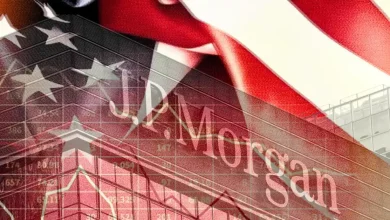
Coinbase wants info on crypto regulations through lawsuits claiming the SEC and FDIC are not transparent.
Coinbase says the SEC's enforcement actions and the FDIC's pressure on banks are hurting the crypto industry.
Coinbase wants the SEC to set clear rules for crypto and for both agencies to be more open about their actions.
In a move that could shake everything up, Coinbase has launched lawsuits against two powerful federal agencies—the U.S. Securities and Exchange Commission (SEC) and the Federal Deposit Insurance Corporation (FDIC). Coinbase’s Chief Legal Officer, Paul Grewal, took to social media to announce the filings, which aim to pry loose crucial information held by these agencies.
What secrets could the SEC and FDIC be hiding? Could this be the turning point for cryptocurrency regulation in the US? Read on to find out!
Coinbase Challenges Regulatory Actions
In a bold move, Coinbase Chief Legal Officer Paul Grewal announced on social media that the cryptocurrency exchange has filed lawsuits against the U.S. Securities and Exchange Commission (SEC) and the Federal Deposit Insurance Corporation (FDIC). The legal action, taken under the Freedom of Information Act (FOIA), aims to compel the agencies to release information on their investigations and regulatory actions impacting the digital-asset industry.
Accusations Against the SEC
Coinbase’s complaint highlights the SEC’s inconsistent and opaque stance on the regulation of digital assets. The SEC, which declared in 2018 that Ether is not a security, has refused to provide clear guidance or modify its rules to accommodate digital-asset firms. Instead, it has engaged in what Coinbase describes as a ‘scorched-earth enforcement war’ designed to cripple the industry.
The lawsuit seeks documents related to closed investigations, including those focused on Ether, to understand the SEC’s current and past regulatory views.
Allegations Against the FDIC
In addition to the SEC, Coinbase’s legal action targets the FDIC, alleging that it pressured financial institutions to distance themselves from crypto-related activities. This action, criticized internally by the FDIC’s Office of Inspector General, is seen as a potential barrier to innovation in the crypto sector. Coinbase demands transparency, urging the FDIC to disclose communications instructing banks to halt dealings with crypto entities.
Legal Basis and Objectives
Filed in the United States District Court for the District of Columbia, Coinbase’s lawsuit argues that the SEC’s refusal to release essential documents violates the FOIA, denying public access to critical regulatory insights. Represented by History Associates Incorporated, a consultancy specializing in FOIA requests, Coinbase seeks not only transparency but also a coherent regulatory framework that supports industry growth.
Implications for Crypto
Coinbase’s legal challenge underscores the urgent need for transparent and consistent regulation within the rapidly expanding digital asset sector. By compelling the SEC and FDIC to comply with FOIA requirements and disclose essential records, Coinbase aims to establish clarity and fairness in regulatory practices.
Also Read: South Korea’s Hashed Ventures Joins Abu Dhabi’s Hub71
Stay tuned for further updates as this lawsuit unfolds and could impact the future of cryptocurrency regulation.








